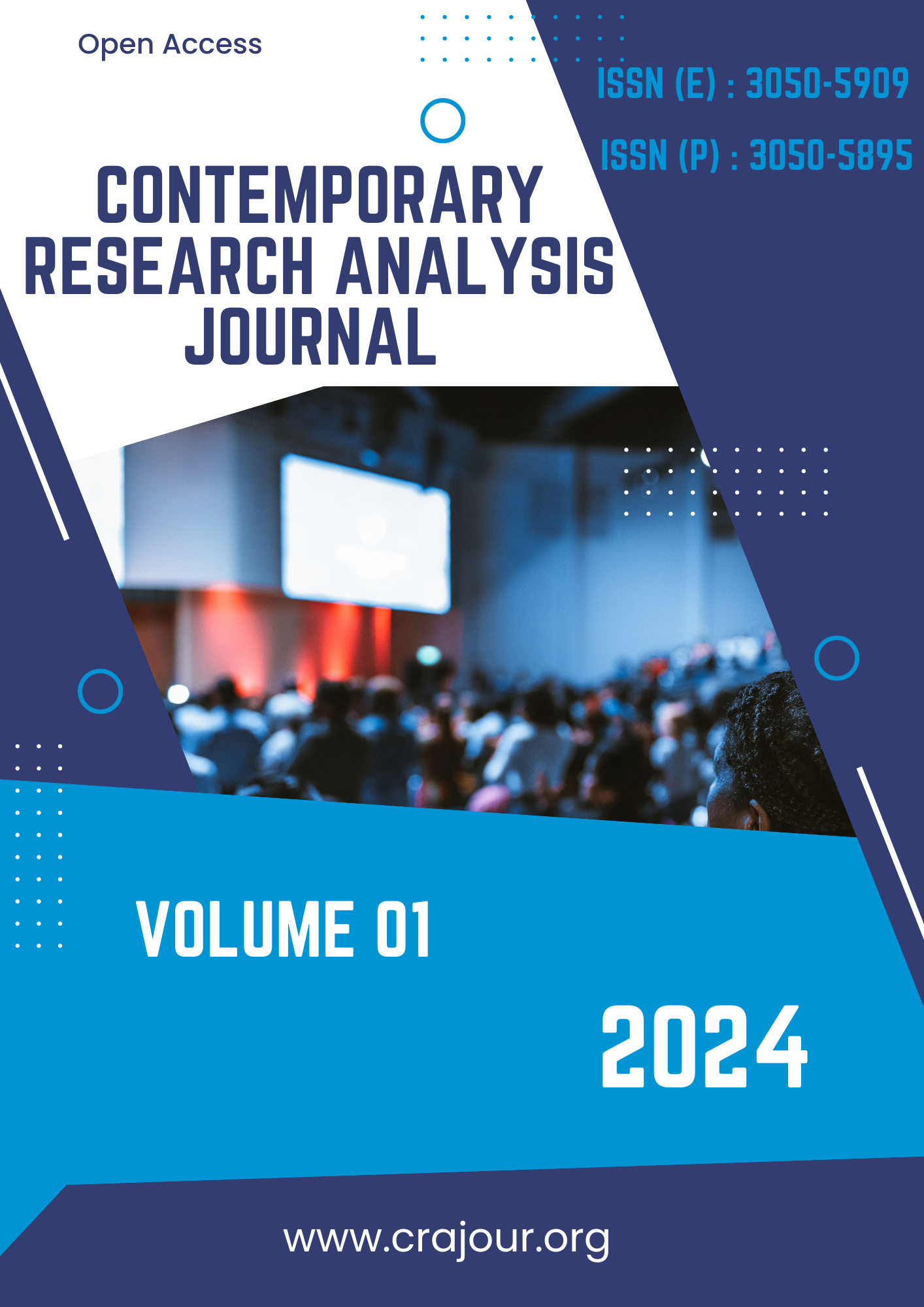Evaluating the Impact of Logistics on Customer Satisfaction in the Nigerian Retail Industry
DOI:
https://doi.org/10.55677/CRAJ/04-2024-Vol01I5Keywords:
Customer, Growth, Logistics, Retail, SatisfactionAbstract
The retail industry in Nigeria has seen significant growth in recent years, with an increasing number of players entering the market and an increasing demand from consumers for convenience and efficient service. However, the industry faces significant challenges in terms of logistics, including poor infrastructure, inadequate transport networks, and inefficient delivery systems. These challenges have a direct impact on customer satisfaction, with consumers reporting delays in delivery, damaged goods, and missing items. The objectives of this research are as follows: To identify the key challenges facing logistics in the Nigerian retail industry.; To assess the impact of these challenges on customer satisfaction; To propose solutions to address these challenges and improve customer satisfaction. The methodology for this research will include a literature review to explore the existing research on logistics, retail, and customer satisfaction. Data collection was done through surveys and interviews, using both quantitative and qualitative methods. This study is significant in addressing environmental problems in the Nigerian retail industry because logistics and transportation are major sources of greenhouse gas emissions and other pollutants. Inefficient logistics and transportation systems can result in increased vehicle miles traveled, more fuel consumption, and higher emissions. By identifying the challenges facing logistics in the retail industry and proposing solutions to address them. The findings provided recommendations for the retail industry and policy makers to improve the sustainability and efficiency of logistics in the country.
References
Reference
Liu, Y., & Song, G. (2023). Role of Logistics Integration Capability in Enhancing Performance in Omni-Channel Retailing: Supply Chain Integration as Mediator. Sustainability, 15(11), 9053.
Lin, X., Mamun, A. A., Yang, Q., & Masukujjaman, M. (2023). Examining the effect of logistics service quality on customer satisfaction and re-use intention. PloS one, 18(5), e0286382.
Sparks, L. (2023). Retail logistics transformation. In Logistics and Retail Management insights Into Current Practice and Trends from Leading Experts (pp. 1-22). CRC Press.
Jamiu, N. A. (2023). Logistics Management and Performance of E-Businesses in Ilorin Metropolis (Doctoral dissertation, Kwara State University (Nigeria)).
Abdulwasiu, A. A. (2023). Service Quality and Customer Loyalty in Selected Retail Businesses in Lagos State, Nigeria (Doctoral dissertation, Kwara State University (Nigeria)).
Olaghere, J. A., Inegbedion, H. E., & Osiobe, F. O. (2023). The Implications of Digitalization in Retail Service Delivery on Circular Economy in Nigeria: An Exploratory Case Study. Sustainability, 15(17), 13192.
Gunasekar, S., Ray, S., Dixit, S. K., & PA, M. R. (2023). AI-enabled product purchase on Amazon: what are the consumers saying? foresight, 25(2), 185-193.
Yaboh, C. M., Salisu, I. M., & Sabatine, U. S. (2023). Assessment of customer satisfaction in public transportation evidence from Gombe State Transport Service (GSTS). Journal of Global Economics and Business, 4(15), 1-10.
Navarro, R., & Bacatan, J. (2023). Analyzing the Relationship between Service Quality and Customer Satisfaction on the Power Services Delivery of Northern Davao Electric Cooperative.
Keshavjee, M. M., & Khalaf-Newsome, I. (2023). International Parental Child Abduction to Non-Hague Muslim Countries: Mediation as a Viable Option. Cross-Border Family Mediation: International Parental Child Abduction, Custody and Access Cases, 83.
Zhang, W., & Zhang, Q. (2023). Ethnomathematics and its integration within the mathematics curriculum. Journal of mathematics education, 151-157.
Demizu, T., Fukazawa, Y., & Morita, H. (2023). Inventory management of new products in retailers using model-based deep reinforcement learning. Expert Systems with Applications, 229, 120256.
Neves, D., Monteiro, M., & Felício, M. J. (2023). Inventory Improvement in Tyre Retail through Demand Forecasting. Engineering Proceedings, 39(1), 1.
Choi, S. B., Dey, B. K., & Sarkar, B. (2023). Retailing and servicing strategies for an imperfect production with variable lead time and backorder under online-to-offline environment. Journal of Industrial & Management Optimization, 19(7).
Oladimeji, A. (2023). Developing an ERP adoption framework for the retail industry of a developing country: case study of a Nigerian company.
Idrees, M. A., Abbas, M., Ali, S. Q., & Khan, A. (2023). The Factors Influencing Effective Inventory Management: A Supply Chain Perspective. Journal of Policy Research, 9(1).
Olaghere, J. A., Inegbedion, H. E., & Osiobe, F. O. (2023). The Implications of Digitalization in Retail Service Delivery on Circular Economy in Nigeria: An Exploratory Case Study. Sustainability, 15(17), 13192.
Touboulic, A., Walker, H., & Chicksand, D. (2014). Managing imbalance supply chain relationships for sustainability: A power perspective. Decision Sciences,45(4), 577–619.
Downloads
Published
Issue
Section
License
Copyright (c) 2024 Contemporary Research Analysis Journal

This work is licensed under a Creative Commons Attribution 4.0 International License.



